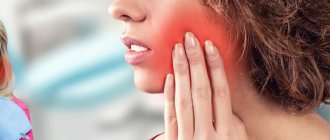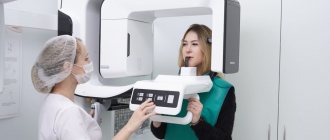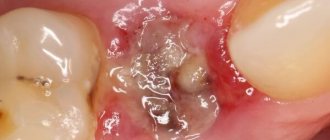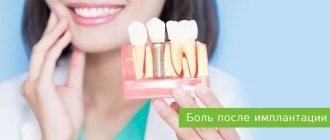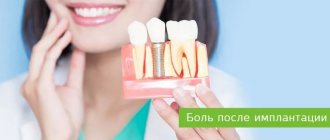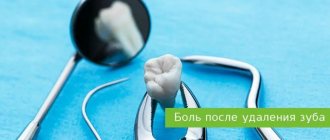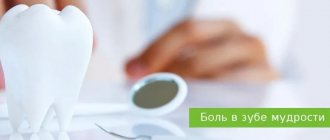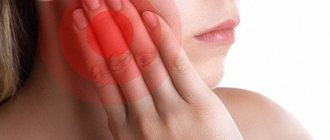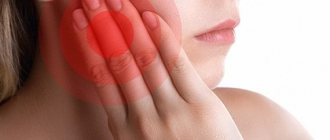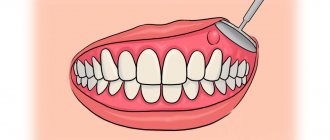What to give a child with a fever?
Monday, January 10
2647
4.2
1
Content
- What temperature is considered elevated in a child?
- What medications should not be given to a child with fever?
- How can you lower your child's temperature?
- Which antipyretic to choose for a child
- Top 8 best antipyretics for children
- Paracetamol
- Calpol
- Panadol
- Efferalgan
- Tsefekon-D
- Ibuprofen
- Ibufen
- Nurofen
- What not to do if a child has a high temperature
When a child is sick and his temperature rises, the body experiences excessive stress. Pediatricians advise lowering the temperature if it exceeds 38-38.5 degrees. Antipyretics have been developed especially for children and should definitely be in your home medicine cabinet. When choosing such drugs, it is necessary to take into account not only the age of the child, but also the active ingredient of the fever remedy.
What is premedication?
Local anesthesia during implantation is always sufficient to eliminate discomfort. But sometimes the patient is so worried and afraid of the operation that the doctor has to take additional measures to help the person calm down.
Premedication helps reduce excessive anxiety. This is a course of drugs with a sedative effect, which must be taken one or two days before the planned implantation. They relieve the patient of anxiety and fear of surgical procedures, and the doctor is able to work normally. Premedication may be indicated not only for people with increased sensitivity to psycho-emotional stress, but also for people with diseases of the cardiovascular system.
What medications should not be given to a child with fever?
Children with elevated temperatures should not be given the following medications:
- "Analgin" (metamizole sodium). In civilized countries, “Analgtn” is prohibited because it negatively affects hematopoiesis and is highly toxic. In post-Soviet countries it is used, for example, as emergency aid as a component of the “lytic mixture”. "Analgin" can be administered once only if other antipyretic drugs are not available. Continuous use of this drug is unacceptable for both adults and children.
- "Aspirin" (acetylsalicylic acid). It is prohibited to use this drug for viral diseases before the age of 12 - the child has a high risk of developing Reye's syndrome (toxic encephalopathy with liver damage).
- "Nimesulide" ("Nise", "Nimulid"). Preparations with such an active substance are prohibited in children under 12 years of age, since there is a high risk of developing toxic hepatitis (severe liver damage).
In the following days
It should be borne in mind that quite a lot of swelling may develop on the second day after surgery, which is a normal reaction to surgery. The swelling will subside on its own at the end of 3 or the beginning of 4 days. Also during this period, a rise in temperature to 38°C, the appearance of hematomas in the projection of the operation area, and difficulty opening the mouth are possible.
To reduce or completely avoid a number of unpleasant symptoms, you should:
- avoid physical exertion and hypothermia (3-4 days) . It is worth reducing physical activity for a few more days, and it is also important not to overcool so that the healing process proceeds at the right pace.
- exclude thermal procedures (for 2 weeks) . Visiting the bathhouse, sauna, solarium, and swimming pool is prohibited. Exposure of the body to high temperatures provokes the development of edema in the wound area.
- do not injure the removal site . To avoid complications and suture dehiscence, it is necessary to protect the surgical area: do not injure the gums with fingers, a toothbrush, or other objects, follow a soft or liquid diet for 7-10 days, and do not open your mouth wide.
How can you lower your child's temperature?
Pediatricians recommend reducing the temperature of children with paracetamol or ibuprofen. It is also important that the dosage of the drug is calculated based on the baby’s weight (there is always a special measuring spoon or syringe in the box with syrup). Ordinary teaspoons are not used in such cases, just like the “by eye” method. You can buy an antipyretic for a child in the form of syrup or suppositories if the baby cannot yet take a pill.
How to reduce a child's temperature
Which antipyretic to choose for a child
The ideal form of the drug for fever for infants is rectal suppositories.
The drug is absorbed in the large intestine and begins to work within half an hour after administration. Candles are very convenient when you need to bring down the temperature, but the child is spitting up or vomiting.
Syrup (or suspension)
It is usually given to children from 1 year of age, although it can be used earlier. This form of antipyretic begins to act quickly and is suitable even if the temperature rises rapidly. When purchasing a syrup or suspension for fever, be sure to read the composition of the drug: it may contain different dyes and flavors, which sometimes cause allergies.
Tablets for fever
can be given only to those children who know how to swallow them (usually at an older age).
Read also: The most effective antipyretics for adults 8 most effective drugs for high fever
When is a combined method used for implantation?
If a patient has heart problems or uncontrolled dental phobia (fear of any dental procedures), the doctor may also offer him the installation of implants under sedation. This is the name for superficial sleep, into which the patient is immersed by intravenous administration of sedatives.
In this case, the person does not “switch off” completely, but sees and hears everything.
Sedation is combined with local anesthesia, thus achieving not only complete anesthesia of the surgical area, but also eliminating emotional stress. Since such anesthesia for dental implantation is a combination of two techniques, it is called combined.
Top 8 best antipyretics for children
We have compiled a list of the safest and most effective fever medications for children, recommended by pediatricians. In addition, these products have earned positive reviews from mothers on forums.
Antipyretics based on paracetamol
These are the most effective drugs that are suitable for children from 1 month. They quickly reduce body temperature and relieve pain. Paracetamol-based products help with acute respiratory viral infections, various inflammations and teething in babies. Contraindications to taking paracetamol include viral hepatitis, liver and kidney diseases, and diabetes. Possible side effects include nausea, vomiting, skin rash, and refusal to eat.
Paracetamol
This antipyretic works as an analgesic (reduces pain) and an antipyretic (lowers body temperature). In addition, Paracetamol has a slight anti-inflammatory effect. One dose can reduce the temperature by 1-1.5 degrees, and the effect lasts for about four hours. Paracetamol is prescribed for viral and colds, and for teething. Until a child is three months old, Paracetamol should be prescribed exclusively by a doctor. The dosage of the drug is also calculated by the doctor; the syrup or suspension should be given to the child before meals. It is important not to dilute the suspension in water, but to give it as is. The syrup can be diluted in a small amount of water or added to a feeding bottle. Among the advantages: safety, possibility of use at a very early age, absence of complications. Disadvantages: sometimes it is possible to develop an allergic reaction (skin rash, nausea, vomiting).
Paracetamol
JSC Pharmstandard-UfaVITA, Russia
Pain syndrome of weak and moderate intensity of various origins (including headache, migraine, toothache, neuralgia, myalgia, algodismenorrhea; pain from injuries, burns).
Fever in infectious and inflammatory diseases. from 14
1045
- Like
- Write a review
Read also: Choosing vitamins for children: 6 best complexes The best vitamin and mineral complexes for children of different ages.
Calpol
Another antipyretic for children, which contains paracetamol. You need to take Calpol an hour to an hour and a half after eating. The drug is sold in the form of a suspension that cannot be diluted with water. The child should take the medicine and wash it down with enough liquid. "Calpol" is prescribed from the age of three months. It has virtually no side effects and quickly brings down the temperature. Among the disadvantages is that you can buy Calpol only in the form of a suspension, and it contains flavorings.
Calpol
GlaxoSmithKline, GSK, UK
Calpol is a syrup for children, an analgesic, has antipyretic and analgesic effects.
Used as: an antipyretic for acute respiratory diseases, influenza, childhood infections, post-vaccination reactions and other conditions accompanied by an increase in body temperature, an analgesic for pain of mild and moderate intensity, including: headaches, toothaches, muscle pain, neuralgia, pain from injuries and burns. from 75
250
- Like
- Write a review
Panadol
You can take Panadol from 3 months; the antipyretic is sold in the form of a suspension and rectal suppositories. The doctor calculates the dosage of the drug based on the child’s weight. You can take no more than four doses of Panadol suspension per day at regular intervals. Candles - no more than three times a day. Panadol does not retain water in the body, so there will be no swelling. Among the disadvantages of the drug is individual dosage calculation, otherwise there is a risk of allergic reactions.
Panadol for children
GlaxoSmithKline, France
Used in children aged 3 months to 12 years: to reduce elevated body temperature due to colds, flu and childhood infectious diseases (including chickenpox, mumps, measles, rubella, scarlet fever);
for toothache (including teething), headaches, ear pain with otitis media and sore throat. In children 2-3 months of age, a single dose is possible to reduce body temperature after vaccination. from 57
156
- Like
- Write a review
What are the possible complications?
The intensity of pain must be carefully monitored. Unpleasant sensations must subside, otherwise it indicates the development of pathology. The gums hurt especially painfully after difficult removal if inflammatory complications develop:
- Alveolitis is an inflammation of the bone socket and surrounding tissues. accompanied by acute, throbbing pain, redness, swelling, the formation of yellow, greenish, dark gray plaque, cloudy pus with a putrid odor. The cause of the complication is poor hygiene in the postoperative period, ignoring the drug therapy prescribed by the doctor.
- Dry socket - there is no blood clot in the socket, it is dry, empty, there is a yellowish-gray coating, a putrid odor. The reason is that the clot was not formed due to a blood clotting disorder; the clot was removed from the socket by the patient during hygiene, intensive rinsing, etc.
- Socket bleeding - may be associated with a blood clotting disorder, excessive damage to tissues, blood vessels, or a fracture of part of the alveoli.
- Facial neuralgia is a rare complication that occurs due to damage to the facial nerve during tooth extraction. Accompanied by numbness in the cheeks, tongue, lips.
- Periostitis is a purulent inflammation of the periosteum that develops for the same reasons as alveolitis. Accompanied by acute, diffuse pain that cannot be relieved with an analgesic. Swelling is pronounced, can spread to the neck, temperature is above 38℃, general intoxication of the body is observed (headache, weakness, etc.).
- Osteomyelitis is a purulent-necrotic lesion of the jaw bone, accompanied by throbbing pain radiating to the ear, temple, fever, swelling of the gums and oral mucosa, spasms of the masticatory muscles, deterioration in general well-being, and enlargement of the submandibular lymph nodes.
Cheek pain after tooth extraction is a very common symptom, the duration of which depends on the complexity of the intervention. Normally, aching pain completely subsides after 2-3 days
. The picture is completely different when complications develop. With inflammatory complications, purulent foci form in the tissues, and the risk of spread of purulent contents through the general bloodstream increases many times over. There is a high probability of phlegmon, abscess, and destruction of bone tissue. Serious surgery and long-term rehabilitation are inevitable.
Efferalgan
Efferalgan has various forms of release, but only syrup and suppositories are suitable for children. Efferalgan can be taken by babies from 1 month old; it can be added to milk, water or juice. Efferalgan suppositories have different dosages of the active ingredient, so when purchasing such suppositories you need to take into account the age and weight of the child. Children over two years old can take Efferalgan in the form of a fruit-flavored powder for dilution in water. This antipyretic agent quickly reduces fever. Among the disadvantages are individual selection of dosage and possible allergic reactions.
Efferalgan Children's
UPSA, France
Efferalgan for children is an analgesic non-narcotic drug.
Efferalgan contains the active substance - paracetamol - a drug from the group of non-narcotic analgesics. - as an antipyretic for acute respiratory infections, influenza, childhood infections, post-vaccination reactions and other conditions accompanied by an increase in body temperature; - as an analgesic for pain of mild or moderate intensity, incl. headache and toothache, muscle pain, neuralgia, pain from injuries and burns. from 76
5.0 1 review
517
- Like
- Write a review
Tsefekon-D
The active substance in this fever remedy is also paracetamol. You can buy "Cefekon-D" in the form of rectal suppositories (for the youngest patients). "Cefekon-D" is suitable for reducing fever during ARVI, colds and after vaccination. The drug not only relieves fever, but also has anti-inflammatory and analgesic effects. Among the disadvantages is a possible allergic reaction in case of overdose.
Tsefekon D
OJSC "Nizhpharm", Russia
Cefekon D is an analgesic-antipyretic, which is used: - as an antipyretic for acute respiratory viral infections, influenza, childhood infections, post-vaccination reactions and other conditions accompanied by an increase in body temperature;
- as an analgesic for pain of mild and moderate intensity, including: headache, toothache, muscle pain, neuralgia, pain from injuries and burns. from 22
5.0 1 review
410
- Like
- Write a review
When choosing an antipyretic for a child, it is important to consider his age and weight
Antipyretics based on ibuprofen
Ibuprofen-based fever medications for children are recommended if paracetamol-based medications do not work or are contraindicated for the child. But it is worth remembering that ibuprofen is contraindicated for intestinal diseases, bronchial asthma, liver diseases or hematopoietic organs. Antipyretics with ibuprofen are suitable for children from three months. It is important to calculate the dosage correctly, since allergic reactions, nausea, vomiting, and diarrhea are possible.
When is anesthesia used for implantation?
General anesthesia, or anesthesia, is a state of the human body in which consciousness, reflexes and pain sensitivity are temporarily disabled. The patient falls into a deep sleep, feels absolutely nothing, hears nothing and then does not remember.
Installation of implants under anesthesia is indicated in the following cases:
- the patient has severe dental phobia;
- allergy to drugs for local anesthesia;
- diseases of the central nervous system and mental pathologies;
- installation of a large number of implants with combined procedures.
To use anesthesia, a dental clinic must have the appropriate license and conditions, so not all dentists offer general anesthesia.
Ibuprofen
Before using this medication for fever, be sure to consult your pediatrician. If there are no contraindications, Ibuprofen is prescribed even to newborns. Children usually tolerate this drug from the group of non-steroidal anti-inflammatory drugs well. You can buy Ibuprofen in the form of a suspension with strawberry or orange flavor. It is prescribed to reduce temperature during acute respiratory viral infections and various infectious diseases. This drug is also suitable for fever after vaccination. Ibuprofen quickly reduces fever. Disadvantages include a short period of use and a ban on combination with paracetamol.
Ibuprofen for children
Rafarma, Russia
Used in children from 3 months to 2 years of age as: - an antipyretic for acute respiratory diseases, influenza, childhood infections, post-vaccination reactions and other infectious and inflammatory diseases accompanied by an increase in body temperature;
- an anesthetic for pain of mild or moderate intensity, incl. headaches and toothaches, neuralgia, pain in the ears and throat, pain due to ligament damage and other types of pain. from 76
141
- Like
- Write a review
What to do if your tooth hurts: TOP 6 best painkillers for toothache
There are two groups of drugs that are best used to relieve toothache. These include: analgesics and NSAIDs (non-steroidal anti-inflammatory drugs).
Analgesics for toothache
These medications eliminate the source of pain by affecting the nerve endings and pain centers in the brain. However, analgesics, unlike NSAIDs, do not affect inflammatory processes and cannot eliminate inflammation of the pulp, periosteum, and gums.
Some drugs from this group, in addition to the analgesic effect, also have an antipyretic effect - they are called analgesics-antipyretics. Such medications can eliminate toothache and reduce the fever that accompanies it. Thus, analgesics-antipyretics help get rid of two unpleasant symptoms at once.
Paracetamol is considered the most popular and safe drug from this group.
Paracetamol
This medication has analgesic and antipyretic properties. It begins to act 30 minutes after administration, after the same time the maximum concentration of the active substance in the body is reached. Paracetamol can be used by children over 6 years of age (in tablet form, dosage 200 mg), adults, pregnant and lactating women.
The effect of the drug lasts 4 hours. This remedy can also be combined with other drugs to enhance their effectiveness. Paracetamol is quite safe, as it has a small list of side effects, and cases of their occurrence are recorded extremely rarely.
Contraindications for use:
- chronic alcoholism;
- serious liver disorders;
- hypersensitivity to paracetamol.
If you have a toothache and this causes your temperature to rise, then the safest thing to do is take a drug whose main active ingredient is paracetamol.
NSAIDs for toothache
Non-steroidal anti-inflammatory drugs suppress the production of prostaglandins (hormone-like substances that cause pain and inflammation in the body), resulting in reduced pain and inflammation. In addition, drugs from this group also have an antipyretic effect.
However, they cause a large list of side effects for the gastrointestinal tract and cardiovascular system. Therefore, they must be taken according to the instructions and prescription of the doctor. It is important to note that medical experts do not recommend taking non-steroidal anti-inflammatory drugs on an empty stomach, as this can lead to negative consequences.
There is a list of contraindications for which NSAIDs should not be taken:
- combined use with other drugs from the NSAID group;
- allergic reactions to the active and auxiliary substances of non-steroidal anti-inflammatory tablets for toothache, as well as powders, ointments and suspensions;
- severe renal, liver or heart failure;
- diseases of the gastrointestinal tract (ulcers, gastritis, Crohn's disease, ulcerative colitis) in the acute stage;
- previous heart surgeries and progressive diseases of the cardiovascular system;
- existing or recent internal bleeding;
- blood clotting disorders.
If you have a toothache and there are no contraindications listed above, then you can take an NSAID tablet.
The most effective painkillers for toothache from the group of non-steroidal anti-inflammatory drugs include: Nurofen, Nimesil, Ketanov, Dexalgin and Olfen.
Nurofen
Used to relieve mild to moderate toothache. The main active ingredient is ibuprofen, its maximum concentration in the blood plasma is reached after 45 minutes if taken on an empty stomach, or after 2 hours if taken on a full stomach.
After oral administration, ibuprofen is quickly absorbed and begins to relieve pain, relieve inflammation and reduce temperature. The half-life of the drug lasts 2 hours.
In addition to the standard contraindications for NSAIDs, ibuprofen should also not be used by women in the last trimester of pregnancy, as this can negatively affect the health of the baby.
Nurofen in tablet form for toothache can be taken by children over 6 years old if their body weight exceeds 20 kg.
To avoid negative reactions from the stomach and the entire gastrointestinal tract, it is recommended to take the drug after meals.
Ibuprofen tablets, which are film-coated, reduce the risk of side effects from the digestive system.
Nimesil
The main active ingredient of the drug is nimesulide. Nimesil is a light yellow powder that has a pronounced citrus smell.
When taken orally, nimesulide is quickly absorbed from the stomach and enters the bloodstream, and the maximum plasma concentration of 100 g of this active substance is achieved 2-3 hours after administration.
It is recommended to take Nimesil for toothache after meals. Nimesulide powder should be poured into a glass, pour 100 ml of water, stir and drink.
An additional contraindication to its use, in addition to the general contraindications for the NSAID group, is the combined use of nimesulide with analgesics and the presence of infectious fever.
It should not be taken by children under 12 years of age, pregnant or nursing mothers, or people with kidney or liver disease.
Ketanov
This drug is used against severe and moderate toothache. Its main active ingredient is ketorolac tromethamine. Ketanov is not addictive, and the strength of its analgesic effect is compared to morphine. This drug is much stronger and more effective than other members of the NSAID group.
Ketanov for toothache has an effect 60 minutes after a person takes the tablet, and the maximum effect of the drug appears after 2-3 hours.
The medication should be taken on a full stomach, because taking the painkiller on an empty stomach increases the risk of side effects. A few hours before and after taking Ketanov, it is recommended not to eat fatty foods, as it slows down the speed of its action.
It should be noted that the presence of urticaria, bronchial asthma, cerebrovascular bleeding and tonsillitis in a person is considered contraindications to the use of the drug.
Children are allowed to drink Ketanov for severe toothache only from the age of 16, and it is not prescribed to lactating women, pregnant women and people with chronic heart, kidney and liver diseases.
Dexalgin
The main component is dexketoprofen. Dexalgin relieves toothache 30 minutes after oral administration. The duration of the analgesic effect is 4-6 hours, and the duration of removal of the medication from the body is 1-3 hours.
Dexalgin is contraindicated for use in patients with bronchial asthma and hemorrhagic diathesis. In addition, it is strictly prohibited for children, women during lactation, pregnant women to drink it and should be taken with caution by people over 65 years of age. And patients who have problems with the kidneys and liver need to reduce its minimum dosage.
Dexalgin must be prescribed by a doctor, since this medicine, like all NSAID drugs, is available by prescription.
Olfen
The main active ingredient is diclofenac. It inhibits the biosynthesis of prostaglandins, thereby suppressing toothache and inflammation. It can also reduce elevated body temperature.
Contraindications to the use of Olfen are:
- cardiac ischemia;
- angina pectoris or previous myocardial infarction;
- peripheral artery disease;
- cerebrovascular pathologies.
The effect begins to appear 30 minutes after administration, and the maximum concentration in the blood occurs after 120 minutes.
Olfen is available by prescription after being prescribed by a doctor.
Ibufen
This antipyretic is allowed for children from 12 months, whose weight is more than seven kilograms. You can buy Ibufen only in the form of a suspension, which is taken undiluted. For a single dose, the dosage is selected taking into account the child’s condition. The maximum frequency of taking Ibufen per day is four times with the same time interval. This fever medicine for children works quickly and effectively. Among the disadvantages is the need for individual dosage selection, as well as rare allergic reactions to the drug.
Ibufen
Medana Pharma SA (Medana Pharma), Poland
As an antipyretic: for colds, acute respiratory viral infections, influenza, sore throat (pharyngitis), childhood infections accompanied by fever, post-vaccination reactions.
As a pain reliever: for toothache, painful teething, headaches, migraines, neuralgia, muscle pain, joint pain, injuries and burns. from 88
464
- Like
- Write a review
Muffled pain in teeth
This is a toothache that a person is used to putting up with and has adapted to live with. It is not as severe as an acute toothache, but it is unpleasant and poisons life. It can be permanent or periodic, occur with a certain pattern, in response to known stimuli, or on its own.
The cause of muted pain is various diseases of the oral cavity. Even the first sensations of pain are a reason to consult a doctor. Most serious illnesses begin with a completely tolerable pain reaction. But if you don’t visit the dentist in time, you can get pulpitis instead of regular caries, and instead of bleeding gums, you can lose a tooth. To prevent this from happening, you don’t have to endure it when your tooth hurts; you need to immediately make an appointment with a doctor.
Nurofen
Perhaps one of the most popular antipyretic drugs for children. It not only effectively reduces temperature, but also relieves inflammation and reduces pain. You can buy Nurofen for children in the form of a suspension with different flavors or candles. Nurofen quickly reduces fever and reduces other unpleasant symptoms of acute respiratory viral infections and colds. Sometimes, when taking this antipyretic, the stomach lining may be irritated, causing nausea, vomiting, or pain. When calculating the dosage, it is necessary to take into account the age and weight of the child. Nurofen is approved for use from three months and is usually well tolerated.
Nurofen for children
Boots UK, UK
For children from 3 months to 12 years of age as an antipyretic for infectious and inflammatory diseases and conditions accompanied by an increase in body temperature, incl.
for: acute respiratory diseases; flu; childhood infections; other infectious and inflammatory diseases and post-vaccination reactions. As an analgesic for pain of mild or moderate intensity, incl. for: toothache; headache; migraine; neuralgia; ear pain; sore throat; pain from sprains; muscle pain; rheumatic pain; joint pain. The drug is intended for symptomatic therapy, reducing pain and inflammation at the time of use, does not affect the progression of the disease. from 90
5.0 1 review
785
- Like
- Write a review
Possible causes of toothache
Caries at different stages can cause pain in the teeth. As a result of poor oral hygiene, tartar forms on the teeth, and as a result, caries develops. Gradually, the tooth enamel will be destroyed, and the internal sensitive tissues of the tooth will begin to be affected. In the first stages of caries development, the tooth may react painfully to hot and cold. When the nerve is already inflamed, toothache may occur as a result of food or water coming into contact with it. Self-medication will not help here: the cause of pain can only be eliminated in a doctor’s office;
abscess or gumboil. Purulent deposits form directly in the gums. In this case, the pain in the teeth is quite sharp and throbbing. There is severe swelling in the oral cavity; in particularly severe cases, the entire cheek may become swollen;
Pulpitis is a logical continuation of advanced caries, which causes severe pain in the teeth. When a tooth hurts due to pulpitis, unexpected severe attacks can be experienced at any time of the day or night, with irradiation into the ear or temple;
Mechanical damage . Tooth trauma, chipped enamel, damage to the crown of the tooth - all this will inevitably lead to pain. If the enamel is damaged, but the nerve remains intact, then pain may not occur immediately, but if you do not consult a doctor in a timely manner, an inflammatory process of the pulp may begin;
Various gum diseases - periodontitis, periodontitis, exposure of the necks of teeth. All these diseases often begin with bleeding gums and have very serious consequences, including tooth loss. Therefore, they definitely require treatment at the dentist’s office.
What not to do if a child has a high temperature
We have all heard about such folk methods of reducing fever as, for example, cooling the body or rubbing with vinegar.
In fact, this cannot be done. cold compresses or ice to a child who has a fever
skin vessels may spasm. A very dangerous condition when the skin is cooled and the temperature of the internal organs rises.
Another danger is rubbing the skin with vinegar or alcohol.
These substances penetrate the blood through the skin, the child can inhale their vapors - poisoning of the body occurs.
*This article is for informational purposes only and is not an advertisement or purchase guide. Information is provided for reference purposes. Self-medication is unacceptable. Before purchasing any drug or if there are signs of illness, you must consult a doctor.
Immediately after removal (first day)
Tooth extraction is accompanied by slight bleeding in the first hours after surgery, which normally stops within an hour. After 2-4 hours, a blood clot forms in its place, closing the wound. The hole will be overgrown with granulation tissue after 3-4 days. If the wound had stitches, they will be removed in about 7 days.
On the first day after removal you must:
- don't eat for 2 hours . You can drink it right away. After 2 hours, it is advisable not to chew anything hard or crumbly and choose soft, porridge-like food.
- exclude hot food . Exposing the surgical area to high temperatures may cause more swelling.
- do not rinse . Experts explain that after tooth extraction you should not rinse, due to the increased risk of injury to a fresh wound. Active movements in the area of the open hole will wash out the blood clot and prevent the wound from healing well.
- don't spit . On the first day, ichor may be released in the area of the operation. Try not to constantly spit saliva to avoid prolonged bleeding.
- apply cold To reduce swelling, it is important that after tooth extraction you can use cold compresses by applying cold to the skin in the surgical area throughout the day. Keep the compress for 20 minutes and give the gums the same amount of time to rest.
- avoid physical activity . Active sports or heavy physical work increase general blood circulation, which can cause sutures to come apart or simply damage an unhealed wound. In team or combat sports there is a risk of injury to the facial area.
